Hinterschmiding - Info point Herzogsreut
THIRTY YEARS WAR, ARCHDUKE LEOPOLD, SETTLEMENT, 1618
Herzogsreut: one of three towns was founded
Imagine living in the year 1618. Times are insecure (uprising of the Bohemian) and long battles are imminent – the Thirty Years‘ War. In order to secure his area and strengthen the Golden Trial, Archduke Leopold of Austria, Prince-Bishop of Passau, had three towns founded at the border area to Bohemia: Herzogsreut, Schwendreut and Leopoldsreut, located deep in the "Nordwald" forest at the Goldsteig Trail. Life in those heights was extremely difficult, so the settlers earned a bit on the side by taking care of the passing sumpters. Some years later (in 1625), Herzogsreut was stricken by the "Black Death". Often enough, it was the sumpters who were blamed for spreading the Plague, which caused a temporary ban on trading of hem. The villages of Schwendreut and Leopoldsreut were both abandoned in the 1960s, whereas Herzogsreut is enjoying a constantly growing population.
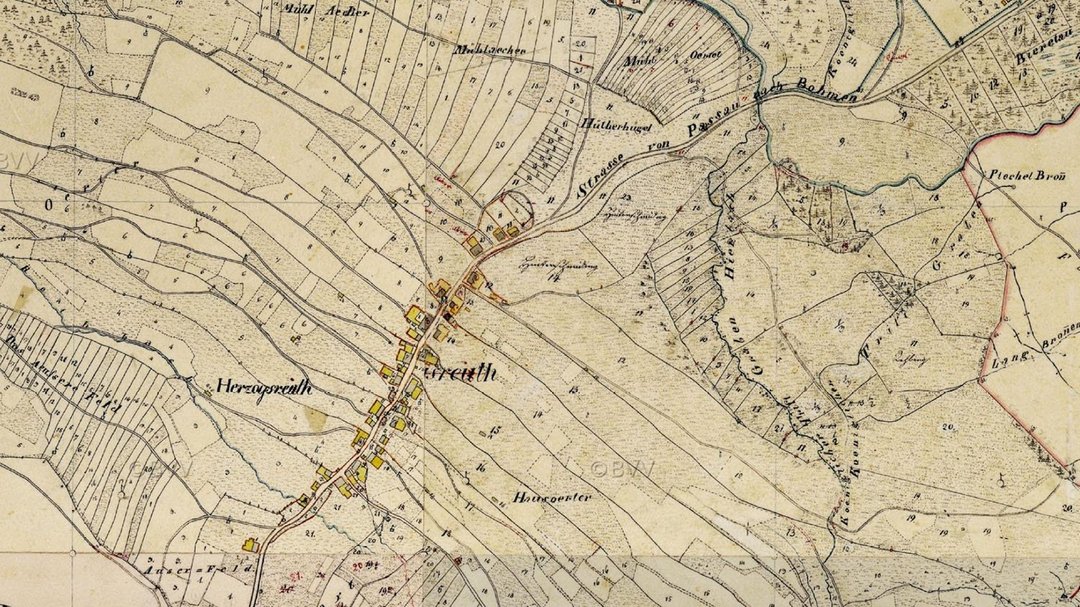
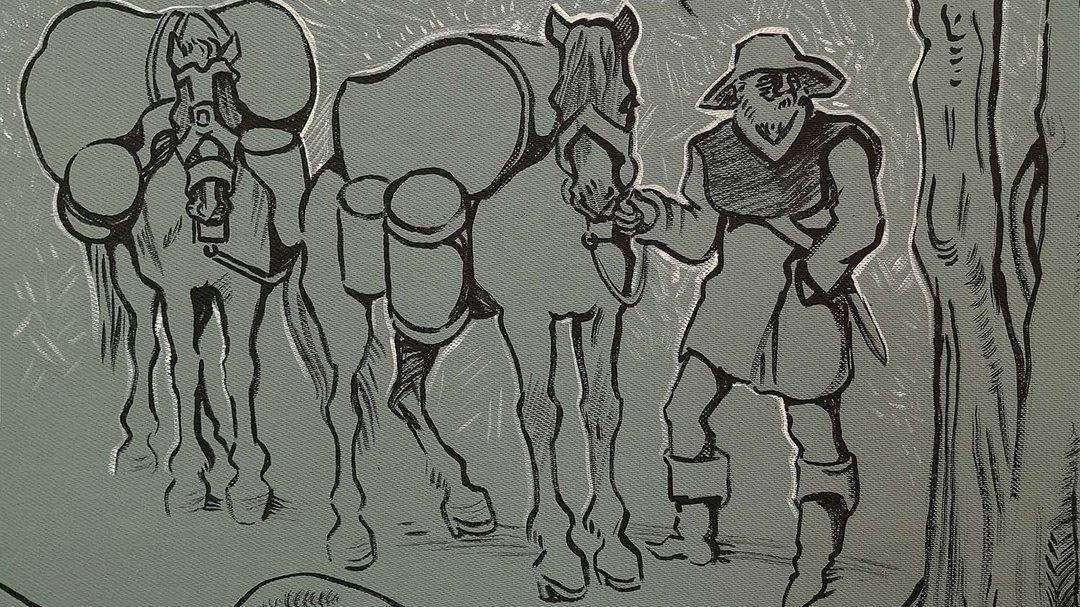
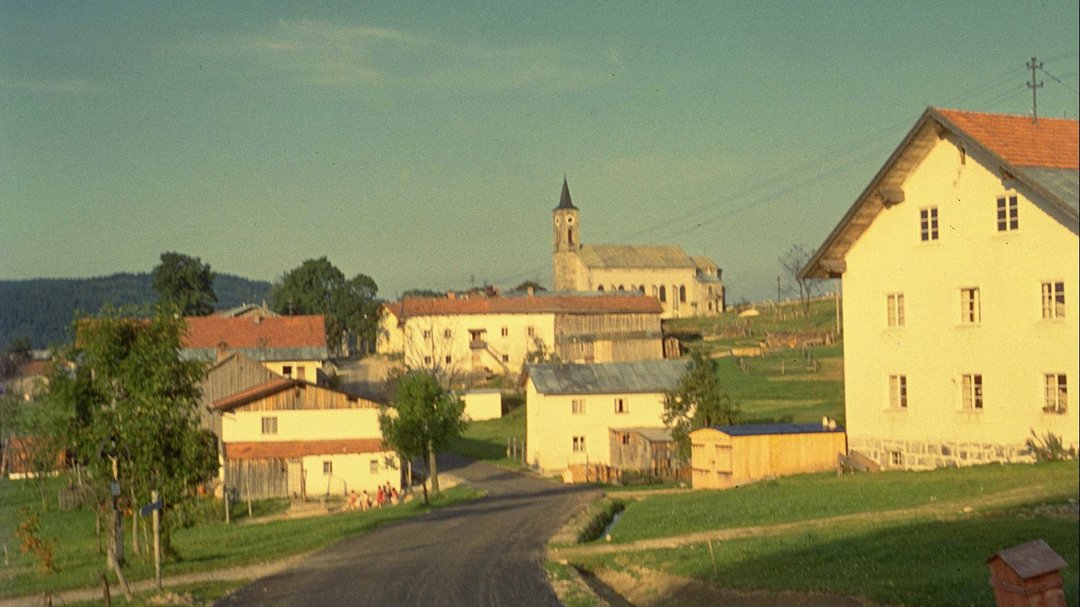
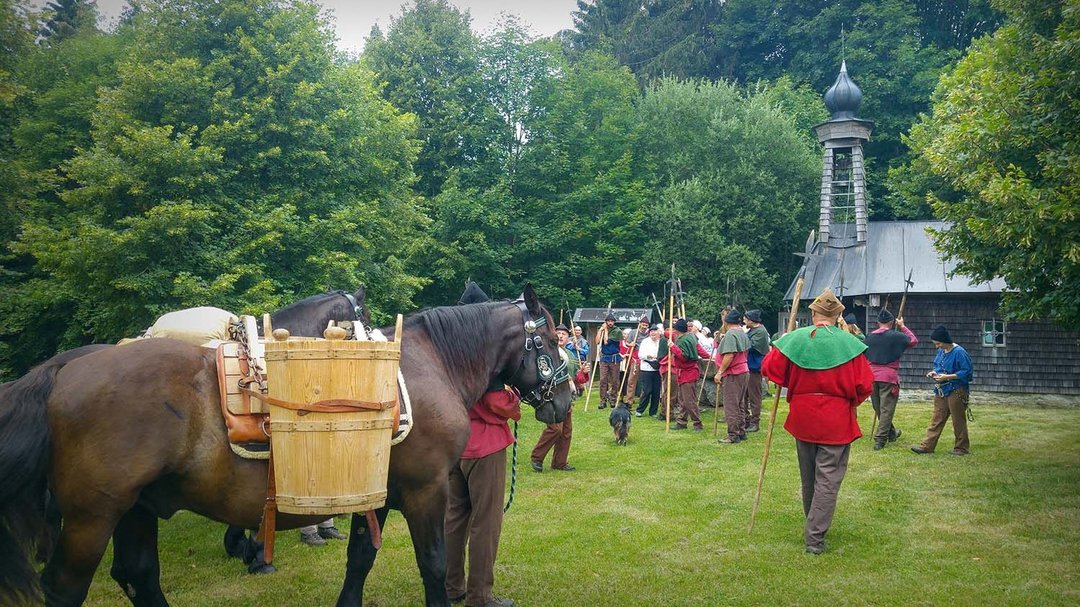
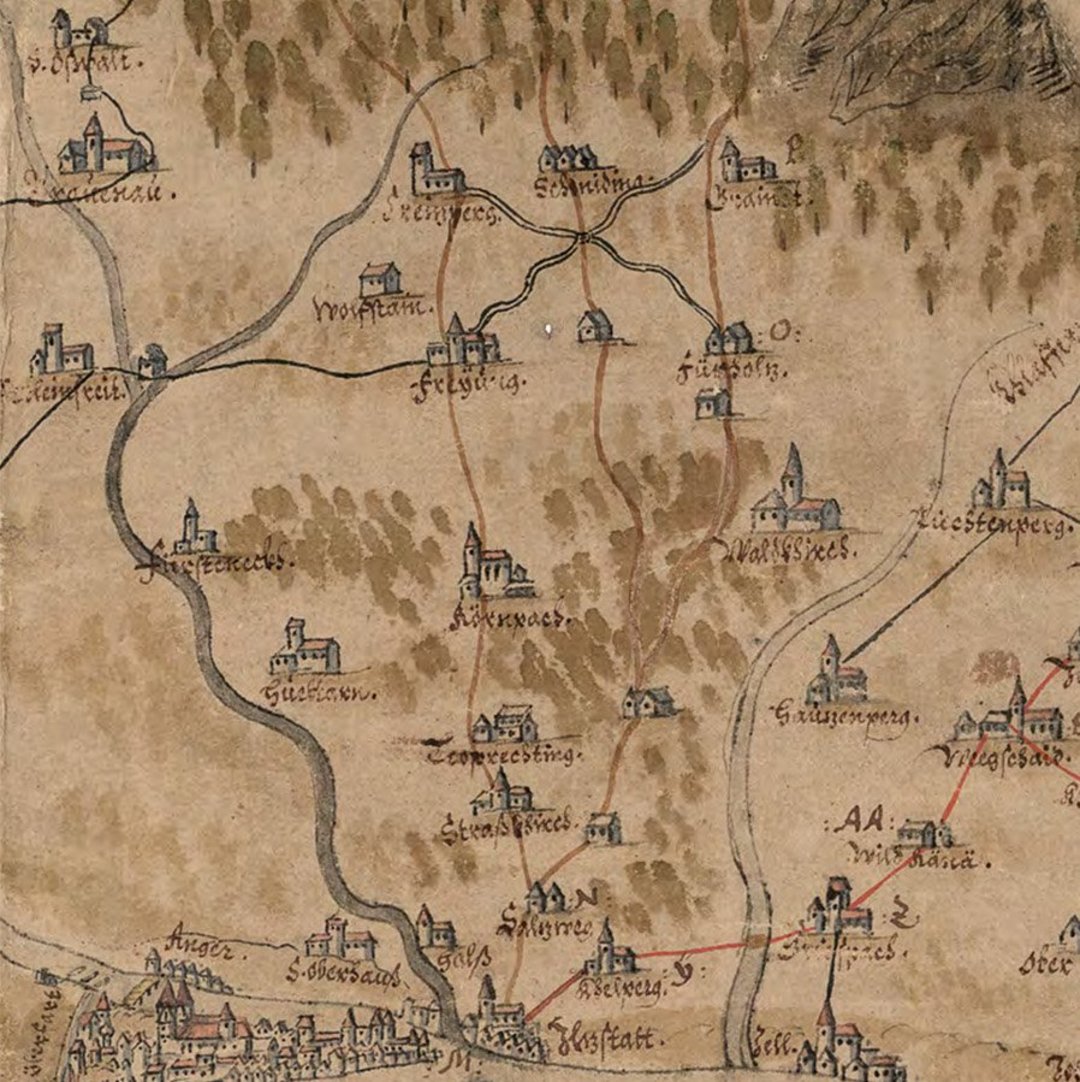
Most sumpters were farmers, operating salt trading as a supplementary income
- approx. 30% late spring: new salt arrived at the newly-navigable river Inn in Passau
- approx. 10% summer: not enough time due to field work and harvest
- approx. 40% late fall: enough time after the harvest and there was enough crops in Bohemia as counter-freight
- approx. 20% winter: no field work and frozen paths for horse sleds, good ways of transport